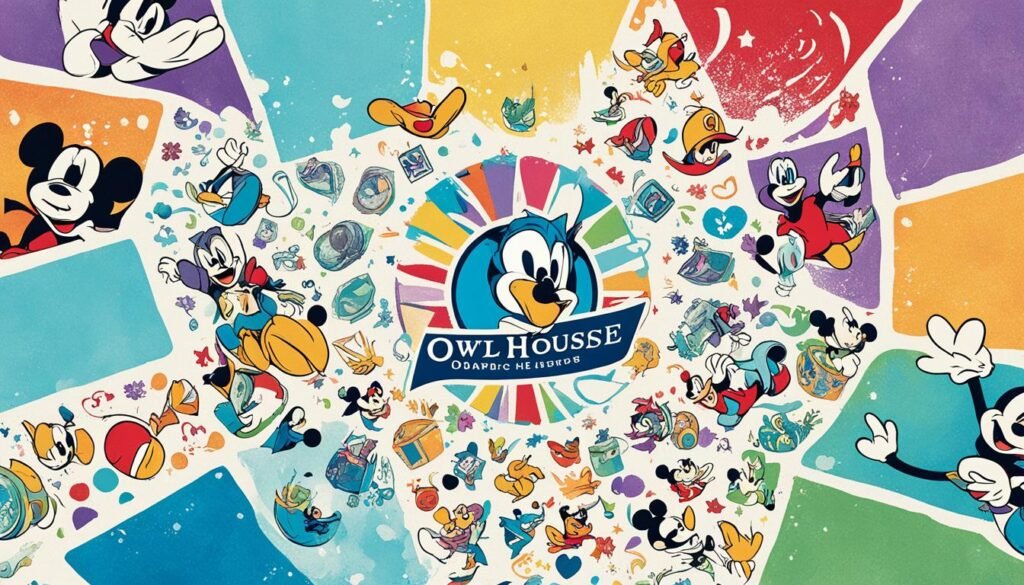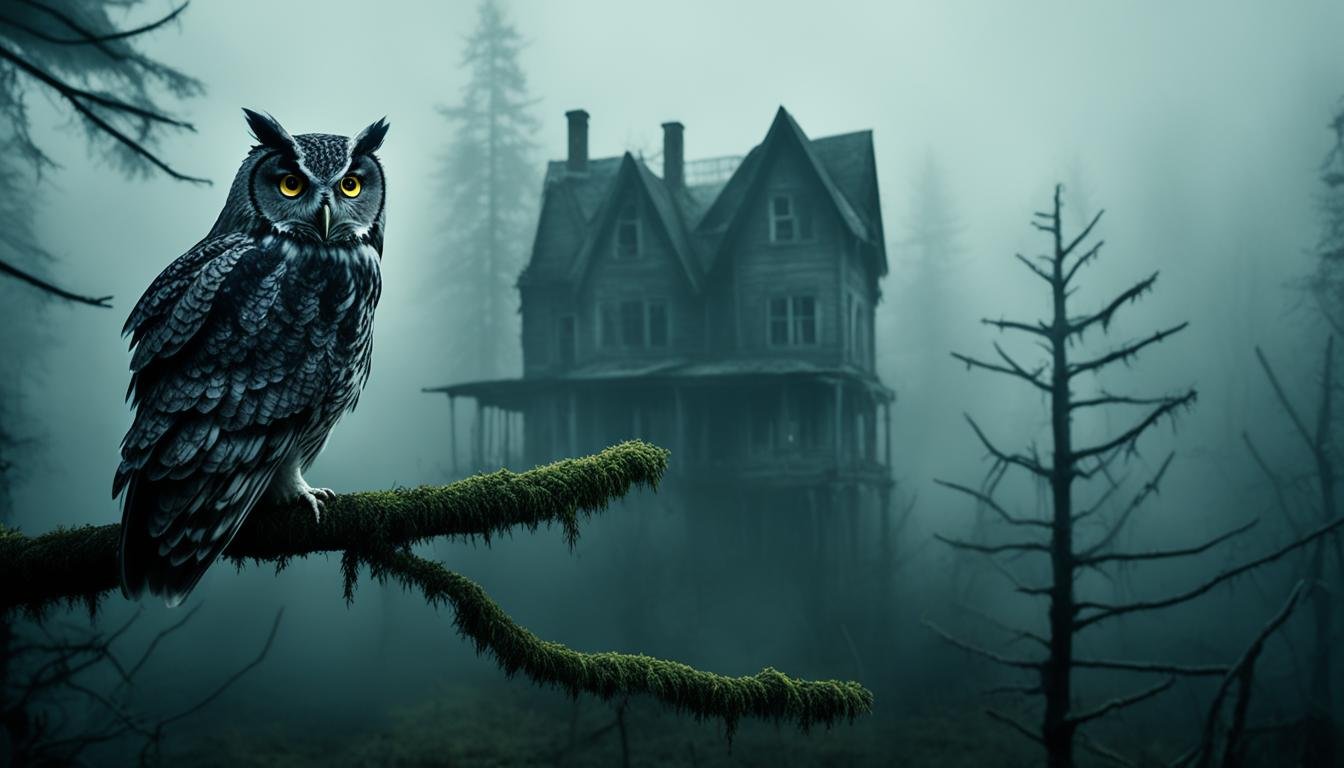The Owl House, a beloved animated series that debuted on Disney in January 2020, received widespread praise for its creativity, original content, and inclusion of LGBTQ+ characters. The show garnered a dedicated fanbase and garnered critical acclaim for its unique storytelling and diverse representation.
However, despite its popularity and success, The Owl House faced an unexpected cancellation. Fans and viewers were left wondering why such a beloved show was abruptly ended. Creator Dana Terrace shed some light on the situation, revealing that the cancellation was not due to poor ratings or the COVID-19 pandemic, but rather because a few people at Disney believed it didn’t align with the brand.
This decision has sparked discussions and debates among fans and industry insiders, highlighting the challenges of releasing content that goes against the traditional formula on a major streaming service like Disney. It also raises questions about the impact of corporate preferences on creative expression and the future of innovative and diverse storytelling in the industry.
Key Takeaways:
- The Owl House, a popular animated series, was unexpectedly cancelled despite its critical acclaim and devoted fanbase.
- The cancellation was not due to poor ratings or the pandemic, but because it didn’t align with Disney’s brand identity.
- The show’s departure from traditional formulas and its inclusion of LGBTQ+ characters may have made some executives uncomfortable.
- The cancellation highlights the challenges faced by content creators in balancing creativity with corporate preferences.
- It raises questions about Disney’s commitment to innovation and the impact on the future of diverse storytelling in the industry.
The Owl House and Disney’s Branding Dilemma
The Owl House, an animated series that captivated audiences with its unique content and storytelling, found itself facing an unexpected cancellation. Departing from Disney’s perceived family-friendly brand and appealing to an older demographic, the show tackled themes of individuality and rebellion while satirizing traditional boarding school tropes. The series drew inspiration from surrealist art, immersing viewers in a fantasy world filled with demons and monsters.
One of the show’s standout aspects was its commitment to LGBTQ+ representation, with well-defined character arcs that resonated with diverse audiences. However, the departure from Disney’s branding ideals may have made some executives uncomfortable, ultimately leading to the show’s cancellation. This decision raises important questions about Disney’s dedication to innovation and the constraints of conforming to a rigid brand identity.

“The Owl House pushed boundaries and challenged conventions, which may have clashed with Disney’s perceived image. Its cancellation highlights the dilemmas faced by content creators when navigating corporate branding expectations.”
This clash between the show’s unique content and Disney’s branding preferences emphasizes the difficulties of releasing unconventional content on a major streaming service. While Disney has made strides in recent years to include more diverse storytelling, the cancellation of The Owl House demonstrates that there may still be limitations on the type of content deemed suitable for the brand.
The Impact of Conformity on Creative Expression
Disney’s decision to cancel The Owl House not only affects the future of the show but also has broader implications for the industry. It raises concerns about creative control and the ability of content creators to break free from a formulaic approach to storytelling. The cancellation sends a message that shows with unique voices and stories may face challenges in finding a place within Disney’s branding strategy.
By prioritizing conformity over the exploration of diverse narratives, there is a risk of stifling creative innovation and limiting the possibilities for future storytelling. The cancellation of The Owl House serves as a reminder of the importance of supporting and encouraging content that challenges norms and embraces a wide range of perspectives.
The Power of Unique Content and Representation
The Owl House’s commitment to LGBTQ+ representation and its exploration of themes of identity and acceptance resonated deeply with its audience. This dedication to telling meaningful stories that reflect the world we live in is crucial for fostering inclusivity and creating a sense of belonging for underrepresented communities.
While the cancellation of The Owl House may be disheartening, it highlights the importance of continuing to champion diverse voices and perspectives in the entertainment industry. By doing so, we can create a rich tapestry of stories that resonate with audiences and reflect the world in which we live.
| Key Points | Impact |
|---|---|
| Departure from Disney’s brand | Raises questions about the company’s commitment to innovation |
| Unique content and LGBTQ+ representation | Highlights the need for diverse storytelling and inclusive representation |
| Conformity and creative control | Raises concerns about the limitations of conforming to a rigid brand identity |
The Impact of Disney’s Programming Decisions
The cancellation of The Owl House is not an isolated incident in Disney’s history. The company’s choosiness and adherence to a formulaic approach have resulted in talented artists and unique content being pushed away. Creator Dana Terrace’s experiences mirror those of other creatives who have felt constrained by Disney’s lack of creative control and resistance to deviating from their established brand identity.
The cancellation of The Owl House comes at a time when Disney is facing challenges with its other properties, including disappointing film performances and a decline in critical and commercial success. This highlights the need for the company to reassess its programming decisions and embrace fresh and innovative content that appeals to diverse audiences.
To ensure the future of kids TV, it is crucial for Disney to encourage shows like The Owl House that take risks and push boundaries. The impact of Disney’s choosiness and reluctance to embrace creative freedom extends beyond a single cancellation; it influences the entire industry and hampers the growth of original storytelling. As the landscape of children’s television evolves, there is a demand for more inclusive, thought-provoking, and imaginative content. It is through this approach that Disney can maintain its position as a leader in the industry and engage a wider range of viewers.
FAQ
Why was The Owl House cancelled?
The Owl House was cancelled because some people at Disney believed it didn’t align with the company’s brand, even though the show had high ratings and critical acclaim. According to creator Dana Terrace, the cancellation was not due to poor ratings or the COVID-19 pandemic.
Does The Owl House’s cancellation have anything to do with its unique content?
Yes, The Owl House stood out among Disney shows for its unique content and storytelling. The series took inspiration from surrealist art and portrayed a fantasy world filled with demons and monsters. Its departure from Disney’s perceived family-friendly brand and its appeal to an older demographic may have made some executives uncomfortable.
Did The Owl House’s LGBTQ+ representation play a role in its cancellation?
The Owl House’s LGBTQ+ representation was a significant aspect of the show. While it has not been officially stated that this was a reason for the cancellation, the show’s departure from Disney’s traditional formula and the inclusion of LGBTQ+ characters might have made some executives hesitant to continue with the series.
Is The Owl House cancellation part of a larger pattern at Disney?
Yes, The Owl House’s cancellation is not an isolated incident. Disney has previously rejected content that didn’t align with their expectations and has limited creative control for artists. The cancellation comes at a time when Disney is facing challenges with other properties as well.
What impact does Disney’s programming decisions have on the industry?
Disney’s choosiness in programming and formulaic approach can limit the availability of fresh and innovative content. This restricts creative control for artists and can hinder the development of shows that take risks and appeal to diverse audiences. However, there is hope for a potential revival of The Owl House in the future.
- How Terry Crews and Rebecca King-Crews Redefined Relationship Goals - 3 January 2025
- Angel Reese’s New Year’s Eve Outfit 2025: A Fashion Statement to Remember - 3 January 2025
- Angelina Jolie Net Worth: $120 Million Empire-Movies, Mansions, and More - 31 December 2024

